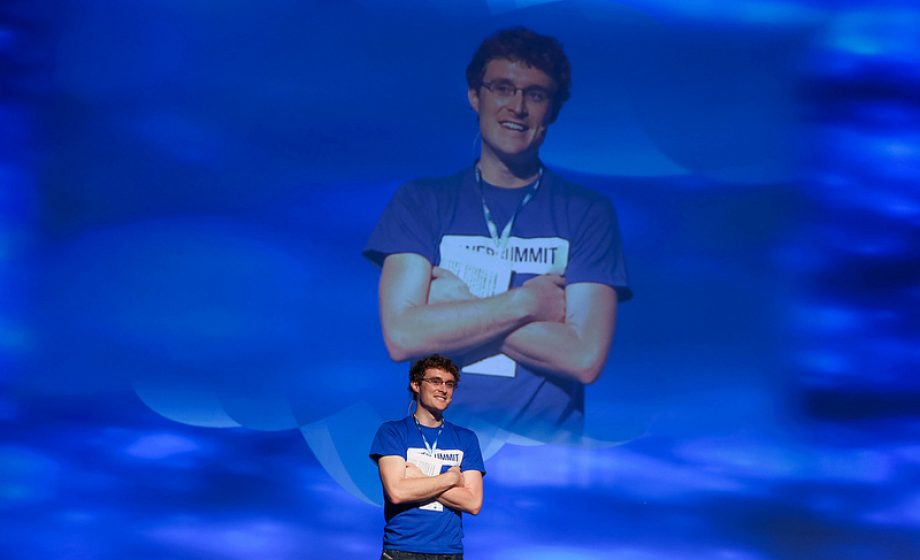
Web Summit has grown incredibly fast over the last few years to become one of the tech world’s top, can’t miss conferences of the year. What started out in Dublin as a modest tech event at the height of the financial crisis, has grown into a power-house series of events, with the Dublin Web Summit as the jewel in the crown. We caught up with cofounder Paddy Cosgrave who talked a bit about their exponential growth, what sets them apart from the pack and how early-stage startups will have an even bigger chance to shine at this year’s edition:
For all those who are unaware, how did Web Summit develop?
The Web Summit really developed when myself and my cofounders David Kelly and Daire Hickey planned a conference for 200 people in 2009, which was at the height of the Irish financial crisis. We wanted to create a good event for start-ups and the event grew exponentially since then. This year we have 10,000 attendees and 2000 tickets sold within first hour. We’re constantly looking at ways to improve the event.
What do you think makes Web Summit stand-out versus other tech conferences?
It’s an event that doesn’t just end at 5pm. It spreads out throughout the Dublin city and goes on until 2 or 3am in the morning. We use dinners, private events, meet-ups, cocktails, parties and live music to make something different, more exciting and engaging.
 What are you most excited about this year’s edition?
What are you most excited about this year’s edition?
I think mainly that we’ve increased the number of early stage start-ups exhibiting by about a factor of seven and for the first time ever we have start-ups coming from all over the world, we have start-ups from 100 countries across the globe. There are over 50 start-ups from Italy this year for example, last year we had one; the growth is incredible. I’m just looking forward to having all these people in Dublin.
Let’s talk a bit about the structure of Web Summit. I know you have several different stages and tracks (the People’s Stage, The Developer Stage, etc), which is quite unique versus other conference. What’s the thinking behind this? What do you see as the value of this approach for attendees?
When you think about any company big or small there are lots of different functions and we try to cater for all of them. There’s probably the technical leader or CTOs in every company so they have the Developer’s Stage. There are people who would be involved in content or marketing so there’s a Digital Stage. There are people who lead on infrastructure or internal ops so there’s an infrastructure stage or there are people who are looking for inspiration and they can go to the Main Stage. Then there are people who are just really excited about start-ups so the Sunday we have four stages running concurrently dedicated to start-ups. So it’s very busy and everyone is catered for with quality speakers.
You now have Web Summit in Dublin and London. How do these events differ, if at all? How do you seek to connect these events?
I think we did one hundred Pub Summits around the world in the 2013 and they helped us grow awareness of an event that 3 years ago didn’t exist. We now have attendees from every one of those cities from around the world. It really worked and was in the right spirit of the Web Summit, which is about not being passive and only offering talks to our attendees but engaging and involving them in a more meaningful way.
Paddy and the team have given us a little bonus too. We have one free precious ticket to the Dublin Web Summit. If you want it, like the embedded status below and comment on why you deserve to win the golden ticket!
%CODEFBWEB%
Photo credits: Web Summit

